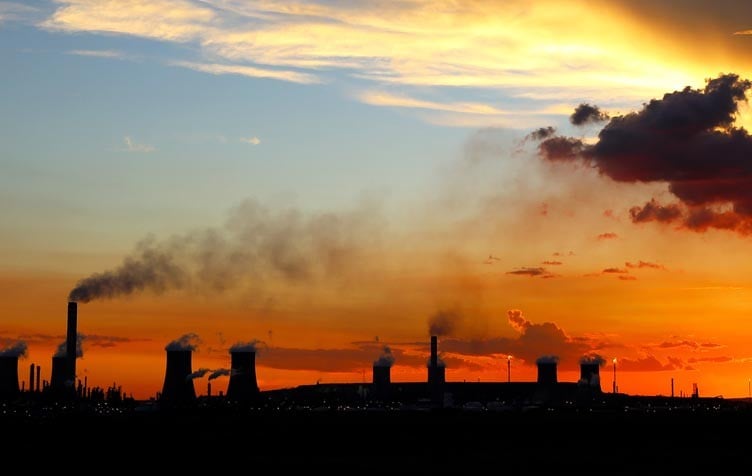
Germanwatch, a think tank, has listed Pakistan among the top-ten most affected countries to climate change

Germanwatch has again reminded Pakistan of its high climate vulnerability, while urging it to climate-proof its infrastructure, if the country is to survive. With every life lost due to climate change, Pakistan is failing its people. This nation may think it has seen the worst, but climate change is in fact the worst enemy that Pakistan has ever come across.
"Pakistan contributes less than 1 per cent of total annual global greenhouse gas emissions but is ranked 7th on the list of countries most affected by climate change from 1996 to 2015, according to the long-term climate risk index by Germanwatch," said Federal Minister of Climate Change Zahid Hamid, while addressing Women Leaders and the Global Transformation Summit at the recently held climate change conference, also known as COP22, in Marrakech, Morocco.
While addressing the summit, Hamid highlighted the various climate-related threats Pakistan faces including glacial melts, variable monsoons, recurrent floods, sea intrusion, higher average temperatures and increased frequency of droughts.
The federal minister also informed the global community that these threats pose major survival concerns for Pakistan, particularly in relation to the country’s water security, food security and energy security. "Pakistan alone needs up to $14 billion annually to adapt to climate change impacts. Our mitigation needs, which have been estimated in our Nationally Determined Contributions based on various assumptions, are much higher," he further said.
Ali Tauqeer Sheikh, who heads Leadership for Environment & Development (LEAD) Pakistan, a regional think-tank, appreciated Pakistan’s leadership for effectively highlighting its climate vulnerability case at COP22. According to Sheikh, "For the first time, Pakistan had a pavilion, which provided the Pakistani delegation a unique opportunity to highlight its status, progress and vulnerability, and attract international climate finance and technology."
This year at the outset of the climate summit in Marrakech, Germanwatch launched its latest Global Climate Risk Index 2017 listing countries that are getting most affected from weather-related loss events from 1996 to 2015.
Germanwatch had earlier listed Pakistan among the top-ten most affected countries to climate change, both in the short and long-term index. However, this time, surprisingly, Pakistan is not listed in ‘The Climate Risk Index for 2015: the ten most affected countries’, as it is on 11th position, losing $907.122 million and 0.0974 per cent to the GDP.
According to Germanwatch, four of the ten most impacted countries are African, which includes Mozambique (1st), Malawi (3rd), Ghana and Madagascar (both 8th).
Unfortunately, in the ‘Long-Term Climate Risk Index (CRI): the ten countries most affected from 1996 to 2015 (annual averages)’, Pakistan is ranked 7th, losing $3.823 billion and 0.647 per cent to the GDP, and facing 133 extreme weather events in the time period. Not to forget last year’s ‘Long-Term Climate Risk Index’ (1995-2014), where Pakistan was ranked 8th, thus highlighting the grim reality that Pakistan’s vulnerability is increasing in the long-run and it is highly likely that if concrete measures for climate adaptation and mitigation are not taken, Pakistan’s vulnerability to climate change can further increase.
Germanwatch has categorically mentioned Pakistan and the Philippines to be recurrently affected by catastrophes in the short and long-term index for the last five years. According to the long-term index, nine out of the ten most affected countries are developing countries in the ‘low’ or ‘lower-middle’ income category, with very low emissions and least responsible for climate change.
For Syed Abu Ahmad Akif, Secretary, Ministry of Climate Change (MoCC), the news that Pakistan is out of the list of top-ten countries most vulnerable to climate change, in the short-run, shows marginal improvement.
The MoCC secretary suggested useful measures which can help the government become more responsible and resilient to climatic impacts. "It is only with determined efforts, of which public awareness and associated citizen action is foremost, that Pakistan can see a better future. Every time someone takes an unnecessary vehicular trip or needlessly uses energy otherwise, he or she adds to climate change. Numerous steps could be taken immediately: tens of thousands of tonnes of rice remnants are burned after every harvest while these could be used for biomass conversion to packaging or energy. Nowhere in Pakistan does a circular ‘waste to wealth’ economy exist," he added.
Pakistan’s progress is getting affected due to climate change and without consulting the already-available risk assessment of the country, various investments can be put at risk, if the investment or critical infrastructures are constructed in the vulnerable areas.
According to Dr Muhi Usamah, Disaster Risk Management Specialist at the United Nations Development Programme Pakistan, the Germanwatch report highlights Pakistan’s vulnerability and exposure to climate-related risks, based on the current and past climate variability and incidence.
While commenting on the short and long-term consequences, Dr Usamah said, "Climate change-related risks stemming from extreme events such as heat waves, extreme precipitation, and flooding can already be observed in Pakistan. The overpopulated urban city like Karachi is the nest of the vulnerable population to the risk of heat wave. The seemingly-simple phenomenon surprisingly resulted into an impactful event, which counted as the fourth top-ten disaster in 2015 from the death toll perspective."
Dr Usamah also suggested useful measures to address climate change, which includes further strategising the implementation of policies and aligning the national climate change policies with the adaptation agenda in the shape of a national action plan.
Preventing human encroachments on river banks, and making them free of human settlement to prevent losing such habitations is necessary, says Dr Usamah.
Pakistan needs to re-promote the ‘think globally act locally’ notion to support climate action at the local level. This should be coupled with investments in renewable energy and raising mass awareness to act on climate change by changing lifestyle patterns.